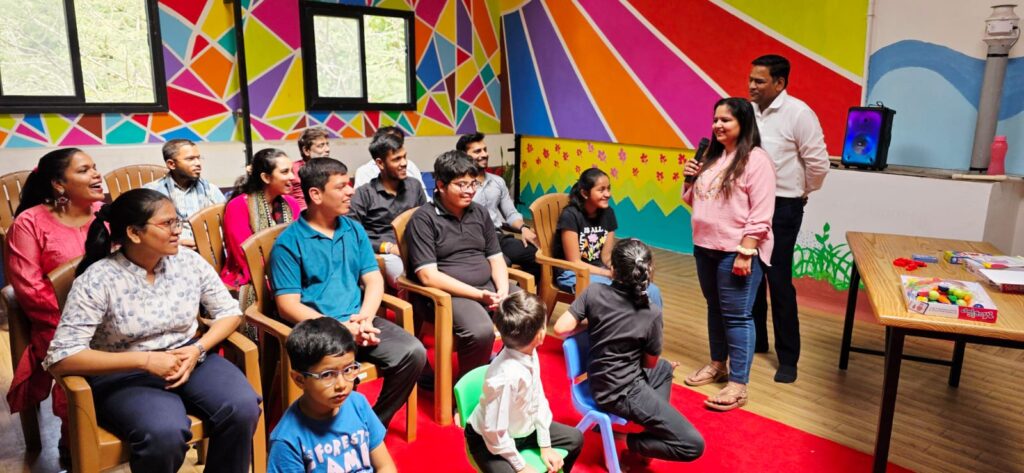
Summer vacations are often seen as a break from routine — a time for fun, travel, and yes, plenty of homework. Create Stories NGO organised an awareness session at Urjasvini Special School in Indore where Child & Clinical Psychologist Dr. Vini Jhariya discussed in same.
Dr Vini says this is also the time when children’s emotions start speaking a little louder. Let’s not just raise children who finish their homework. Let’s raise children who understand themselves.
According to Dr Vini, without the structure of school, peer interaction, and daily challenges, many children begin to feel a sense of emotional restlessness. Some may withdraw, some may act out, and many don’t understand what they’re feeling — they just know something doesn’t feel right.
Before we assign summer homework, we must focus on emotional homework.
What is Emotional Homework?
Emotional homework is not about writing or reading. It’s about building the inner world of a child:
Understanding their emotions.
Expressing feelings clearly.
Handling boredom without frustration.
Developing empathy and kindness.
Building resilience when things go wrong.
These are life skills — and just like maths or science, they must be taught, practiced, and nurtured.
Practical Emotional Homework Tips for Parents
- Have Daily Emotional Check-ins
Ask questions that go deeper than “How was your day?”
Try: “What made you smile today?” or “Was there anything that confused or upset you?”
Create a habit of daily reflection and safe conversations.
- Create a Calm Corner at Home
A small space with drawing material, soft toys, or music — a space where your child can sit alone when overwhelmed. This teaches emotional regulation and self-soothing.
Use Stories and Movies as Tools
After a film or a story, ask:
“What do you think the character felt?”
This builds empathy and critical thinking.
Praise the Effort, Not Just the Outcome
Instead of “Good job,” say,
“I saw how hard you tried — that really matters.”
It builds confidence and a sense of inner value.
Let Them Be Bored
Boredom is not the enemy. It leads to creativity, problem-solving, and emotional growth. Don’t feel the need to entertain your child constantly.







Good https://is.gd/N1ikS2
Very good https://is.gd/N1ikS2